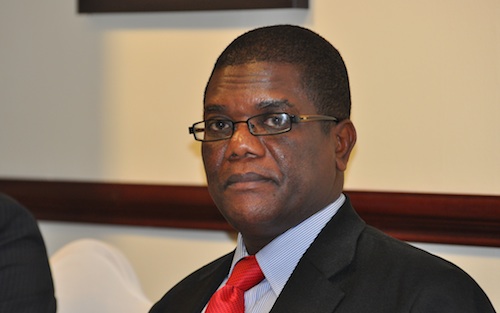
Telkom nonexecutive chairman Jeff Molobela, under fire for allegedly overstepping his mandate and interfering in the day-to-day operations of the group, has hit back at his critics, saying he’s been unfairly maligned.
Molobela used a press conference in Johannesburg on Wednesday to slam “innuendo from a number of quarters” and refute claims that he “recklessly ignored corporate governance” protocol.
The chairman, who is appointed by government, has come under fire from former CEO Reuben September and is also understood to have fallen out with outgoing Telkom chief financial officer Peter Nelson.
Both Nelson and September are understood to have wanted to close down Telkom’s disastrous Nigerian subsidiary Multi-Links but the board under Molobela blocked this. Molobela thinks Multi-Links, the value of which has been written down to zero, can still be saved. It’s a view backed by Telkom acting CEO Jeffrey Hedberg.
Molobela says that when he joined Telkom’s board in November 2009, one of the board’s first decisions was to appoint a task team to investigate problems at Multi-Links.
“It became very clear that management was not positively disposed to the formation of the task team,” Molobela says. “They [management] found and argued that this was a way of micro managing them, interfering in the operation of an asset that should be under direct control of management.”
But Molobela says the board had to involve itself in Multi-Links due to a range of concerns over the way the business was being managed. He says forming the task team was arguably the “best decision” the board had taken since he was appointed as chairman.
He says management had proposed that Multi-Links be merged with Nigerian rival Starcomms. “But it became very clear to the task team that, rather than reducing Telkom’s exposure, the proposal would have resulted in Telkom diluting to 39% in a listed company [Starcomms] whose debt was huge,” he says. “Far from reducing Telkom’s exposure, it would have increased its exposure [and] would have compounded the problems at Multi-Links. The task team turned that proposal down.”
However, a senior source at Telkom contradicts Molobela’s claim about Starcomms, saying management, rather than proposing a merger with the Nigerian company, had rejected the idea.
Molobela says, far from interfering without a valid reason, the board “couldn’t sit aside while it was evident that one of the pillars of the core strategy [Multi-Links] was falling apart”.
But the board felt strongly enough about allegations brought to it by September that Molobela was interfering unnecessarily in the running of the business that it appointed KPMG to conduct a forensic report.
KPMG has not concluded its investigation, but it’s expected to be presented to the board within the next few weeks. Molobela says he sees no reason why the report should not be made public, though he emphasises that would be a call made by the board, not him personally.
Meanwhile, Molobela has rejected suggestions that he’s doing government’s bidding at Telkom, and that the expiry of the special shareholder rights government enjoys at Telkom in March 2011 motivated the decision not to renew September’s contract as CEO when it expires in November.
Government, as the so-called “class-A shareholder”, has special veto powers and the ability to appoint the chairman and has a say in the appointment of the CEO.
“Every shareholder has the right to try to influence what happens [at Telkom],” Molobela says. “However, I am confident I have a board with the mix of people that will ensure the right decision [is taken regarding the appointment of a new CEO]. If government wants to influence that, we will ensure that interference is kept to as little as possible.” — Duncan McLeod, TechCentral
- Subscribe to our free daily newsletter
- Follow us on Twitter or on Facebook

